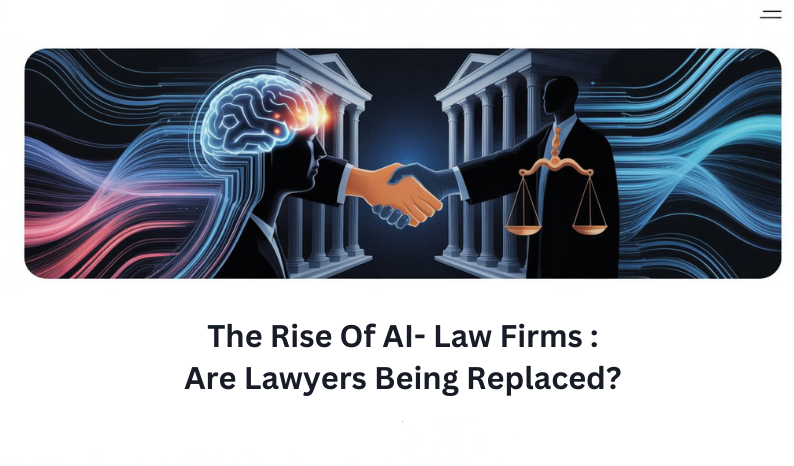
The Beginning of the AI Lawyer Era
The legal sector is rapidly changing with the potential of technology. Arguably the most disruptive technology is the emergence of the AI lawyer — not to replace legal professionals, but to enhance their capabilities. AI in law offices is no longer a futuristic dream; it’s already improving workflows and redefining how lawyers manage their daily operations.
From managing documents through records management software to ensuring compliance using digital document management systems, law firms now depend on technology to oversee vast data efficiently. The integration of AI lawyer tools into these systems is revolutionizing how legal professionals communicate, work, and serve clients.
In this article, we’ll explore how AI-based solutions for law firms are transforming the legal landscape and why adopting an AI lawyer approach can accelerate success for your law office.
The Contribution of AI Technology to Law Practice Management
Traditional law firms spend enormous amounts of time handling paperwork, maintaining compliance, and organizing files. With the introduction of AI-based records management systems, these manual tasks are becoming streamlined.
A powerful records management software leverages machine learning to categorize, archive, and recover legal documents. Combined with a digital document management system, it enables lawyers to securely access client files and case details anywhere, anytime.
AI is also improving document control, a vital aspect of law practice. From version tracking to user access permissions, an AI-driven records management system helps maintain organized and error-free files, significantly reducing the risk of document loss or mismanagement.
AI-Managed Documentation
Legal documentation can be overwhelming — contracts, affidavits, pleadings, and agreements keep accumulating every day. Here’s where AI lawyer tools can make a significant difference. AI-enabled documentation can automatically organize and sort documents by client names, case numbers, or keywords.
Popular platforms like SharePoint’s document management system now integrate AI features to improve document archiving systems. With contextual understanding, these tools can extract key clauses, highlight relevant terms, and streamline collaboration between departments.
For example, an environmental lawyer searching for compliance-related case files can instantly retrieve relevant archives using AI search functions. This accessibility boosts productivity and enhances client satisfaction.
AI Lawyer and Records Management System
An effective records management system powered by AI ensures data integrity, legal compliance, and secure access — three essential pillars for every modern law office.
How AI strengthens record management:
- Automated Classification: Organizes documents by type, client, and jurisdiction.
- Predictive Retrieval: Suggests files based on prior usage patterns.
- Compliance Monitoring: Alerts users to retention schedules or compliance deadlines.
- Secure Archiving: Encrypts files for long-term, tamper-proof storage.
Using an AI-enabled records management solution minimizes manual labor while enhancing data accuracy and security — both crucial for legal firms handling confidential information.
Client and Case Insights Powered by AI
The AI lawyer concept extends beyond documentation — it’s reshaping client and case management too. By analyzing past client interactions, billing information, and case histories, AI provides valuable insights that help lawyers make better, data-driven decisions.
This improves client relationship management, allowing personalized communication and fostering client trust. Integrated with a client management system, firms gain a holistic view of the client lifecycle, from onboarding to case closure.
Automation also supports client success management, ensuring that deadlines are never missed, updates are consistent, and client satisfaction remains high.
Compliance, Privacy, and Security
Legal professionals deal with sensitive data daily — from client contracts to litigation files. Maintaining privacy under client-lawyer privilege is vital.
An AI lawyer-enabled document management solution ensures that all shared files comply with legal standards. Access control allows administrators to define who can view, edit, or share documents. AI algorithms also detect unusual access activity, helping firms maintain compliance and prevent data breaches.
By automating compliance and monitoring, law offices can protect client data while improving overall transparency and trust.
Digital Transformation in Financial Management
AI isn’t just transforming documentation — it’s reshaping financial management in law firms too. With features like automated invoicing, transaction tracking, and expense monitoring, firms can achieve full financial transparency.
A unified AI system can manage subscriptions, billing cycles, and trust accounts automatically. This comprehensive financial management reduces accounting errors and enables lawyers to focus more on client service instead of administrative work.
Such automation reflects the evolution from traditional bookkeeping to financial planning and wealth management driven by AI precision.
Why Law Firms Are Adopting AI Technology
Law firms globally are embracing AI technology to gain a competitive advantage. Whether through records management systems, digital document management, or AI-driven client success tools, AI enhances both operational efficiency and scalability.
Key reasons for adoption include:
- Efficiency: Streamlines repetitive and time-consuming tasks.
- Accuracy: Reduces human error in documentation and data entry.
- Scalability: Handles increasing caseloads effortlessly.
- Data-Driven Decisions: Offers insights through analytics.
- Client Satisfaction: Improves communication and speed of service.
AI technology modernizes infrastructure and establishes law firms as innovative leaders in the evolving legal sector.
The Role of AI in the Future of Legal Practice
As AI technology advances, its influence on legal practice will deepen. Expect smarter records management systems, predictive document control platforms, and analytics tools that assist lawyers in building stronger case strategies.
While AI can’t replicate human empathy or judgment, it enhances every other aspect of legal operations — from document archiving systems to client management programs. This fusion of human expertise and artificial intelligence defines the modern AI lawyer era.
Conclusion: AI Empowering the Legal Community
The AI lawyer symbolizes more than just automation — it’s the bridge to smarter, data-driven, and efficient legal practice. By integrating AI into records management, document control, and client relationship systems, law firms lead the digital transformation in the legal sector.
Implementing artificial intelligence for law firms isn’t just about technology; it’s about evolving how legal services are delivered. Let AI handle the data so your lawyers can focus on what truly matters — justice, strategy, and client trust.




